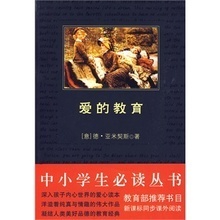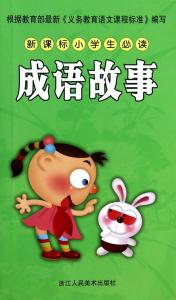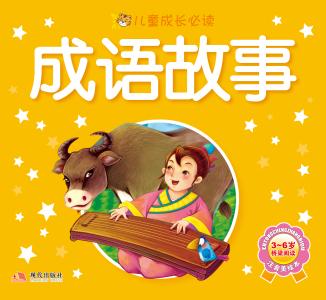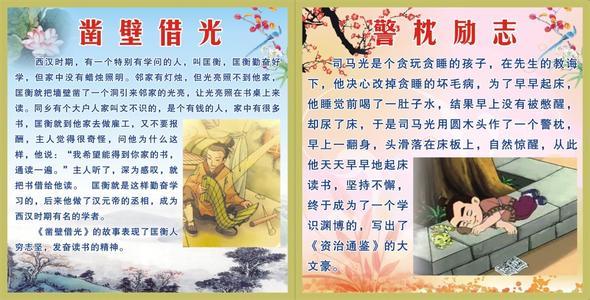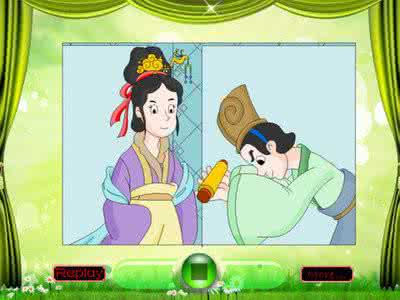下面小编为大家带来的经典成语故事,欢迎大家阅读!
经典成语故事:投鼠忌器there is a story in "Hanshu" telling of a rich man, who being a lover of s and had a large collection. Among them was a rare vase made of jade. The vase of exquisite workmanship and of historical value and he loved it dearly. One night he noticed a mouse passing near the precious vase. The mouse jumped into the vase and was trying to eat some food which the man had carelessly left there. The sigh infuriated the man and in a fit of rage he threw a stone at the mouse. For sure, the mouse was killed, but the precious vase was broken also. The loss of the vase pained the man GREatly and he deeply regretted his own thoughtlessness, which bought him this unrecoverable loss. He now realized that any one, who cares for the present and overlooks consequences is apt to bring disasters upon himself. So he exclaimed to warn people by saying do not burn you house to get rid of a mouse.
《汉书》中有这么个故事:有个富人,很喜欢古董并收藏了很多。其中有一件稀有的玉盂,工艺精湛,具有很高的历史价值,深受这个富人的喜爱。一天晚上,一只老鼠跳进了这个玉盂,想去吃里边的一些剩菜,正巧被这个富人看到了。他非常恼火,盛怒之下,他拿了块石头砸向老鼠。当然,老鼠是被砸死了,可是那个珍贵的玉盂也被打破了。这件事使富人非常难过,他深深后悔自己的鲁莽带来的不可挽回的损失。他认识到只考虑眼前,而忽视后果,将给自己带来灾难。他向世人发出警告,不要为了除掉一只老鼠而烧毁自己的房子。
经典成语故事:滥竽充数During the Warring States Period (475-221BC), the King of the State of Qi was very fond of listening to yu ensembles. He often got together 300 yu players to form a grand music. The king treated his musician very well. A man named Nanguo heard about that and he managed to become a member of the band, even though he wan not good at playing the instrument at all. Whenever the band played for the king, Nanguo just stood in the line and pretended to play. Nobody realized he was making no sound at all. As a result, he enjoyed his treatment just as the other musician did. When the king died, his son became the new ruler who also liked the music played on the yu. However, he preferred solos so that he ordered the musicians to play the yu one by one. Therefore, Nanguo had to run out of the palace.
the idiom "Be there just to make up the number" is used to mock someone who passes for a specialist. You can also hear people saying it about themselves to show their modesty.
战国时,齐宣王喜欢听竽,通常是三百人的大合奏。因为他给予乐师非常优厚的待遇,所以一个叫南郭的人尽管并不擅长吹竽,也设法混进乐队。当乐队演奏时,他就站在队伍里假装也在吹。没有人注意到其实他连一点声音也没吹出来,所以南郭也享受到和其他乐师一样的待遇。宣王死后,他的儿子继承了王位。他也喜欢听竽,可是他喜欢听独奏,让乐师一个个吹给他听,于是南郭不得不逃跑了。
"滥竽充数"这个成语用来嘲笑那些没有真正才干,混在行家里的人。 人们有时也用"滥竽充数"来表示自谦。
经典成语故事:半途而废During the Warring States Period (475-221BC), there was a man called Yue Yangzi in State Yue. One day he saw a piece of gold on the road and picked it up. He took it home and gave it to his wife. But his wife was not happy. The virtuous woman said, "I hear that a man of morality doesn't drink a thief's water and a man of probity refuses to accept alms. What do you think of the action of picking up another's lost valuable and possessing it for one's own?"
Yue Yangzi, feeling ashamed, sent the gold back to where he found it.
the next year, Yue Yangzi felt that he should go out and visit scholars to enrich his knowledge. So he set off.
A year later, he came back home suddenly.
"Why have you returned?" asked his wife in surprise, "You've only spent one year studying with scholars."
"I come back because I missed you very much."
Without saying anything, his wife took a pair of scissors and went to the loom at which she had worked. Pointing at the half done brocade, she proclaimed : "This brocade is woven from the finest silk. I wove one strand after another to produce the brocade. Now if I cut it, all my previous work will be wasted. It's the same with your studies. You can acquire knowledge only through diligence. Now, you've stopped halfway. Isn't it the same as cutting the brocade on the loom?"
Yue Yangzi was moved by what she said. He again left home to visit scholars. Several years later he became a learned man.
战国时期,魏国有个叫乐羊子的人。有一天,乐羊子在路上看到一块金子,他就捡起金子,带回了家并把它拿给妻子看。可他妻子一点儿也不高兴。这个贤惠的女人对他说:"我听人说'壮士不饮盗泉之水;廉洁的人不食嗟来之食'。把别人遗失的贵重之物捡起来据为己有,你怎么看待这种行为呢?"
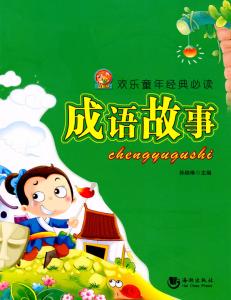
乐羊子听了妻子的话,觉得很惭愧,就把那块金子又扔到原来的地方。
第二年,乐羊子离开家到了一个很远的地方,去拜师求学。
一年后,乐羊子突然回到家中,他的妻子很惊讶地问:"你怎么回来了?你才和那些学者学了一年呀。"乐羊子说:"我太想你了,所以回来看看。"
他的妻子听了以后,二话不说,拿起把剪刀走到她的织布机前。她指着那块已经完成了一半的锦缎说:"这块锦缎用的是最好的丝。我一丝丝的累积来织成这锦缎。如果我现在把它剪断,就等于前功尽弃。你求学也是这样。如果现在停止,和剪断织布机上的锦缎有什么区别?"
乐羊子被妻子的话所感动,于是立刻离开家,继续拜师求学。
几年后,乐羊子终于完成学业,成为一个博学的人。
 爱华网
爱华网